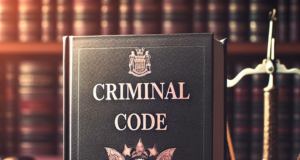
The severity of the maximum punishment possible for an assault case may depend on such factors as the identity of the victim, which may be defined in a variety of ways. The two main traits examined by specific laws on assaults, however, can be considered to comprise of heightened physical vulnerability to an attack or the holding of some kind of public office considered necessary for the maintenance of civil society.
In such cases, punishments are often higher than might be incurred by assaults accomplished through comparable means or to comparable degrees of harm inflicted.
Various legal systems throughout the world and within the United States, the provisions of both State and Federal specific laws on assault cases are geared toward retrospectively providing for the protection granted to certain members of society. People at the extreme ends of either very young or very advanced ages are commonly granted such protections by specific assault laws.
Another likely object for protection are those who suffer some form of physical or mental disadvantage in relation to a person exercising physical force, such as in the form of mental disabilities, blindness, or a limited degree of mobility.
Specifically adjusted assault laws may alter the consideration of mitigating factors found to be present in an occurrence of assault. For instance, an important concept in the practice of assault law in legal systems such as those of the United States and the United Kingdom is the concept of "privilege," which is to say, the privilege to use physical force in certain situations.
The right to self-defense is a commonly cited example of privilege cited in the mounting of legal defenses against prosecutions under assault law. The applicability of this right to assault law may be abridged, however, in such cases as those involving people evidently less capable of inflicting violence on others, as might be said, in most cases, of children or of the physically or mentally disabled.
Cases in which the object of the attempt at self-defense had, in a sense, greater power to apply physical force against an individual can be furnished by the examples of police officers, who as part of their office are generally entrusted with greater discretion in employing physical force in the performance of their duties than is generally the case. The basic tool used by legal systems for deciding the applicability of specifically suited assault laws is that of the "reasonable limits" which an action may permissibly occur within.
The methods through which assault law is enforced in cases considered special can differ from more conventional cases. A dispute between two physically and mentally competent adults which turns into a violent altercation, for instance, might result in one or both parties being required to take anger-management classes.
Prosecution under assault laws for child protection, on the other hand, is likely to consider that offense unusually egregious and possibly indicative of psychological dysfunction. Special assault laws may also supplement the enforcement power of the police with social service providers.
























